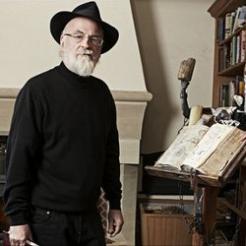Robert Ashton envisages a future where a network of comfortable assisted-suicide centres are run as social enterprises.
Sir Terry Pratchett’s recent BBC documentary (pictured) that screened the first TV suicide was always going to provoke a lively debate. Assisted suicide and those one-way trips to Geneva raise some highly emotive issues that many find too challenging to think about. It was brave of Peter Smedley to take his deadly dose in front of the cameras and a shame that he is no longer around to join in the debate.
For me there is no debate. I would certainly make that journey myself if terminally ill and no longer able to enjoy life. I’ve already bequeathed my body to Gunther von Hagen’s Bodyworlds exhibition so that when I die, I’ll be plastinated and put on public display. You can see that I am not in the slightest bit squeamish about my mortality.
But for me there’s an underlying debate that’s yet to take place. In 20 years time the UK population of old folk over 85 will double. That’s an awful lot of people needing expensive long-term medical care, costly social care in the home and sitting on assets badly needed by the cash-starved younger generation. In my own case, the sole surviving oldie in my life is pushing 87 and fortunately still enjoying life. But when he does go, any inheritance will form the deposit for my son’s first house.
So while philosophically I think we should all have the right to end our lives when we feel the time is right, the opportunities for coercion by greedy relatives cannot be underestimated. Furthermore no amount of legislation, protection or pre-mortem checks and interviews can prevent the wicked from eroding a vulnerable person’s feeling of self-worth to the point where they give in and agree.
Politically, assisted-suicide legislation must present an almost unmissable opportunity to diminish the cost burden of a fast-ageing population. You could, without too much imagination, realise that in time assisted suicide could become the norm rather than the exception.
Almost 30 years ago, the art-house film ‘Soylent Green’ depicted a future time where going to die became as natural a thing to do as going on holiday. Characters in the film went out to soothing music and the panoramic projection of comforting countryside scenes. And then they were processed into protein-rich biscuits that fed the rest of the population.
I’m not for a moment suggesting our government will one day introduce cannibalism, but some nice assisted-suicide centres are, in my view, far more likely. Would they be friendly social enterprises, or cold and clinical state facilities? Now that’s an even more interesting question!









